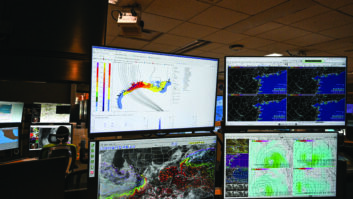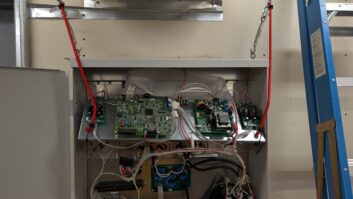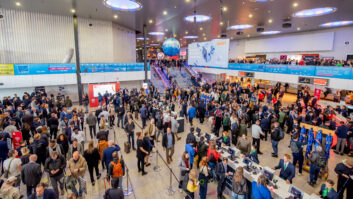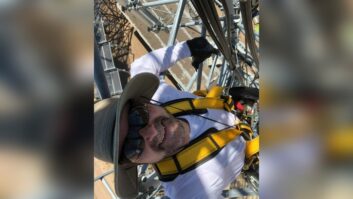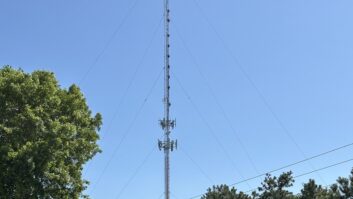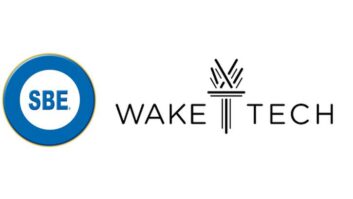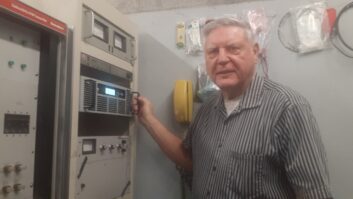Reasoning that spring is too long to wait to update pubcast engineers on their many technical projects, the Association of Public Radio Engineers and NPR Labs held a mini Public Radio Engineering Conference at the NAB Radio Show in October.
APRE Chair Ralph Hogan, who is assistant general manager of engineering services at Washington State University, said volunteers are still needed for the new group, which is writing bylaws, developing membership categories and starting to focus on helping NPR Labs organize the spring PREC in 2007.
What follows are highlights of the October event; a story in a subsequent issue will look at IBOC program-associated data projects.
Fundraiser HD-R Units on Delivery Schedule
NPR Labs was anticipating shipments of 1,200 Boston Acoustics Recepter Radio HD units by early November. Member stations can purchase the units under favorable terms from the network and use the radios as giveaways in exchange for promoting the radios.
The network was not looking at other HD Radios for purchase at this time, said NPR VP/CTO Mike Starling, also executive director of NPR Labs. The lab, along with the HD Radio Receiver team and station volunteers, evaluated four radios for possible purchase; of those, two tested well, he said, the BA and a JVC unit. He didn’t name the other two units.
Member stations expressed interest in tabletop models to be used as giveaways during fall fundraisers.
Ibiquity offered for review a rough engineering sample of the Sangean tabletop (to be sold to consumers by Directed Electronics) before the bulk order confirmation deadline; however given time constraints, the team thought it prudent to wait for the final version before proceeding with a bulk order. Ibiquity is offering the tabletop to broadcasters for $99 plus shipping for promotional purposes in time for late November/early December availability, which would miss most fall pubcaster fundraisers.
The receiver evaluations are becoming more sophisticated, Starling indicated, including determining whether the pre-set buttons are easy to use and selecting a radio whose operation won’t be frustrating to listeners, he said.
This is the second such order for the Recepter; NPR placed a group buy last November as well. He pegged the dollar amount of the recent purchase as representing more than $300,000, even with the recent retail price drop for the BA Recepter HD.
The unit is now listed at $149, down from $299.99. Consumers may also apply for a $50 rebate.
CPB Sees HD-R Grant Application Slowdown
CPB is concerned because the pace of applications for digital radio conversion grants has slowed — a 45 percent decline from fiscal 2005 to ’06. While CPB announced that 85 new matching grants were awarded in August, Lynne Chadwick, until recently the senior director of media technologies at CPB, said the drop is disappointing and CPB would award a contract to survey to discover why eligible noncom stations are not applying for the grants.
“We were afraid some could not do the match. We are going door-to-door to make sure stations know the grant money is there for the next round,” which may open up in January, said Chadwick, who recently took a position with NTIA.
CPB is getting pushback from lawmakers on Capitol Hill to justify the funding in a tight budget year, she said. “If we want this money, we’re going to have to show demand for it.”
TV and other needs are consuming resources, she said, and while funds for radio’s digital transition are set aside now, she couldn’t guarantee that money will still be available in a year.
The reduction noncoms enjoy on their one-time Ibiquity license fee also depends on CPB continuing to bring the technology developer noncoms to sign up for IBOC, she said.
Since 2003, CPB has distributed 559 radio digital conversion grants. It awarded a total of $7.74 million in IBOC conversion grants to 85 radio stations in August.
Of the 169 licensees operating 315 transmitters that are eligible, none have begun any IBOC conversion projects.
As reported earlier, CPB hopes to find out if stations that haven’t applied for the funds also need additional resources, such as staffing, and what CPB can do to help.
Doug Vernier, president and founder of V-Soft Communications and a contractor to CPB on several technical projects, said the grant funds could also be used to help stations upgrade their analog equipment if the improvements are tied to the IBOC conversion.
Including the 85 grants awarded in August, CPB has some 390 public radio transmit facilities (by transmitter count) on the books as subjects of IBOC conversion grants. The projects range from those that have filed grant paperwork to begin their projects, to completion and final testing of converted facilities and preparing close out paperwork, according to CPB Radio Digital Grants Manager Brian Gibbons.
NPR Labs to Quantify IBOC, Analog Coverage, Interference
NPR Labs has applied for five grants related to IBOC. Some of those have been awarded and Starling was “cautiously optimistic” the remaining items would be approved.
The grant topics include accessible radio services, digital signal coverage improvement, audience data mining and program-associated data.
The Department of Education’s National Institute of Disability Rehabilitation and Research awarded a grant to NPR and the WGBH National Center for Accessible Media to develop accessible radio technology for listeners who are deaf, hard of hearing, blind or visually impaired. The grant will help fund three years of R&D. The award is for $150,000 the first year.
The project’s total budget for the first year is $227,810. The grant will cover 65 percent of the project costs for the first year; NPR will fund the remaining 35 percent.
NPR Labs demoed one aspect of the concept at NAB2006; as reported here earlier, proponents hope to demo “conditional access capability” for HD Radio at NAB2007.
NPR Labs is conducting digital radio coverage and interference analysis research for CPB with the goal of determining long-term implications for pubcasters and the potential impact on listeners. CPB’s portion for this work is $544,000.
The project will determine the impact on the public’s ability to receive an interference-free public radio signal during and after the digital conversion. Planners said loss of service in the top 50 markets will be quantified by measuring the difference in coverage during and after all pubcasters begin transmitting IBOC. The amount of interference created by co- and adjacent-channel HD-R stations also will be explored.
The interference measurements will determine the difficulty listeners might experience using various analog and HD-R receivers.
The project, expected to take a year, will recommend improvements that can be made to receivers and transmitters that will lead to a larger availability of public radio services in the U.S.
Also, NPR has applied for a PTFP grant to drill down into its audience figures, refining research it conducted in the 1990s that showed how many people had access to public radio signals. Starling said NPR hopes to learn the demographics of those who have access to public radio, and of those who do not, and to learn more about who could be in that audience. The project is projected to take a year and a half, he said.
CPB is funding two grants for program-associated data research related to HD Radio. The goal is to develop and define a concensus on first-generation program-associated data services for public radio.
Public Radio International has a $325,000 grant to develop a PAD standard for stations and producers as they incorporate it into their broadcast and programs.
NPR Labs has applied for a $200,000 grant to develop a PAD standard for hardware and explore the possibility of bundling the capacity of ContentDepot into PAD for stations.
Technical Database Project Underway
NPR Labs is assembling a station technical database in order to have all such information on its member stations in one place. This would make it easier, when lobbying the FCC or Congress, to have information readily available.
With such a database, Starling said, NPR could tell the FCC, for example: “Here’s a percentage of our stations already on the air with an HD3 signal that would be affected by a particular proposal.”
The database will include information from CPB, the FCC’s Web site, NPR’s member information and new fields.
Kyle Evans of NPR Labs said the network seeks advice on what data would best serve member station needs. Currently, for example, the database includes fields on general station information, technical data, operations, IBOC and disaster readiness. The IBOC section in particular includes details about digital transmitter power output, digital combiner loss and multicasting.
Member stations will be able to access the information through an online interface; other pubcasters would also have a way to see the information, said Starling.
APRE Seeks Input
APRE is focused on helping noncom technical staff understand and implement updates for issues such as new public services, signal development and spectrum integrity.
Of the NAB Radio Show event, vice chair Dan Mansergh, director of engineering for KQED(FM) in San Francisco and an RW contributor, said the group is interested in feedback on whether APRE should continue to offer educational opportunities at the convention, especially seeking comments on format, content and style.
“We got very good response from those we talked to. We all came away with valuable info. The big question for next year is format — should there be more presentations or workshop-style groups?” APRE plans to address those points with some follow-up to the to the larger noncom engineering community in April, he said.
Meanwhile, the spring PREC is tentatively set for April 12–13. NAB2007 begins on April 14.

